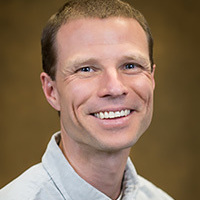
Yau Man Siew
Research interests and specialization: Curriculum and instructional theory, ethnographic-qualitative research method, assessment of learning in theological education, educational leadership and discipleship in congregational settings.
Address: Toronto, Ontario, Canada
Address: Toronto, Ontario, Canada
less
Related Authors
Eileen Campbell-Reed
Union Theological Seminary
Susan L Maros
Fuller Theological Seminary
Eric Kyle
University of Central Oklahoma
Michael A Milton
University of North Carolina at Chapel Hill
Tim Tseng
Fuller Theological Seminary
InterestsView All (8)









Uploads
Papers by Yau Man Siew
church in New England. Through careful listening to stories of pastors and church members and participation in various faith events, the researcher sought insider perspectives to the research
question. The study revealed an effective pastor as a servant shepherd-leader who has earned the trust of his congregation over many years and who possesess a pastoral imagination to respond appropriately to unique faith contexts. The study also suggests that an effective pastor is an adaptive shepherd-teacher who views faith formation as integrated within the total life of the congregation and creatively shapes core ministries into faith-forming experiences. This ethnographic study, applied
in congregational contexts, emphasizes the importance of Christian education in the theological curriculum for the formation of shepherd-teachers. It also teaches seminary students that effective pastoral ministry always begins with attending to the rich and textured stories of the people they serve.
These “implicit” values and convictions about pedagogy that instructors (and students) bring to the classroom greatly influence the quality of learning, but they are often unexamined or unexpressed. Effective learning happens when these values are shared, explored and critiqued in the class. In this essay, the author provides practical ideas and suggestions to explore the pedagogical values of instructors and students. His goal is to deepen the learning experience through fostering community
and a culture of learning in the classroom.
church in New England. Through careful listening to stories of pastors and church members and participation in various faith events, the researcher sought insider perspectives to the research
question. The study revealed an effective pastor as a servant shepherd-leader who has earned the trust of his congregation over many years and who possesess a pastoral imagination to respond appropriately to unique faith contexts. The study also suggests that an effective pastor is an adaptive shepherd-teacher who views faith formation as integrated within the total life of the congregation and creatively shapes core ministries into faith-forming experiences. This ethnographic study, applied
in congregational contexts, emphasizes the importance of Christian education in the theological curriculum for the formation of shepherd-teachers. It also teaches seminary students that effective pastoral ministry always begins with attending to the rich and textured stories of the people they serve.
These “implicit” values and convictions about pedagogy that instructors (and students) bring to the classroom greatly influence the quality of learning, but they are often unexamined or unexpressed. Effective learning happens when these values are shared, explored and critiqued in the class. In this essay, the author provides practical ideas and suggestions to explore the pedagogical values of instructors and students. His goal is to deepen the learning experience through fostering community
and a culture of learning in the classroom.